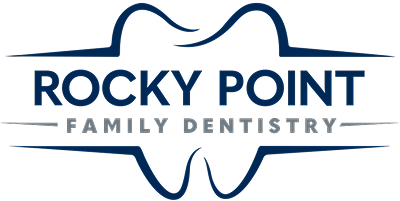7864 US-117 Suite A, Rocky Point, NC 28457, United States

Gentle Relief for Jaw Pain and TMJ Disorders
Jaw pain can turn everyday activities—like eating, speaking, or even smiling—into a challenge. For many, this discomfort is caused by a TMJ disorder. The temporomandibular joint (TMJ) connects your jawbone to your skull, enabling smooth movement. When this joint doesn’t function properly, it can significantly impact your daily life. At Rocky Point Family Dentistry in Rocky Point, NC, we provide personalized solutions to restore comfort and ease.
Understanding TMJ Disorders
A TMJ disorder occurs when the jaw joint or surrounding muscles are strained, irritated, or misaligned. This can cause pain that radiates beyond the jaw to the head, neck, and shoulders. Some individuals experience occasional discomfort, while others may face daily challenges. Early treatment can prevent long-term issues and restore natural jaw function.
Common Signs of a TMJ Disorder
TMJ symptoms vary from mild irritation to chronic pain. Look out for:
- Jaw pain or stiffness that worsens with use
- Clicking, popping, or grinding sounds when opening or closing your mouth
- Headaches or earaches linked to jaw tension
- Difficulty chewing or fully opening your mouth
- Facial soreness or pressure near the jaw joint
If these symptoms sound familiar, timely TMJ care can bring noticeable relief.
What Causes TMJ Disorders?
TMJ issues often result from multiple factors:
- Teeth grinding or clenching: Constant pressure on the jaw and muscles can lead to pain.
- Stress: Tightened facial muscles and unconscious jaw habits contribute to discomfort.
- Injury: Trauma to the jaw, face, or neck can damage the joint or alter alignment.
- Arthritis: Wear and tear of joint cartilage may reduce smooth movement.
- Bite issues or misaligned teeth: Extra strain on the jaw can worsen symptoms.
Identifying the root cause is key to developing an effective, personalized TMJ treatment plan.
Treatment Options for TMJ Disorders
TMJ care focuses on relieving pain, restoring movement, and preventing further joint strain. Treatment often begins with conservative approaches:
- Oral appliances: Night guards or stabilization splints protect teeth and reduce pressure on the joint.
- Bite adjustments or orthodontic care: Correcting alignment can relieve strain.
- Therapeutic exercises: Strengthening and relaxing jaw muscles improves function.
- Self-care strategies: Soft foods, heat/cold therapy, stress reduction, and avoiding jaw-stressing habits.
- Medications: Over-the-counter pain relievers or prescription options may be recommended for persistent discomfort.
In severe cases, advanced treatments—such as injections or surgery—may be considered to restore optimal function and comfort.

